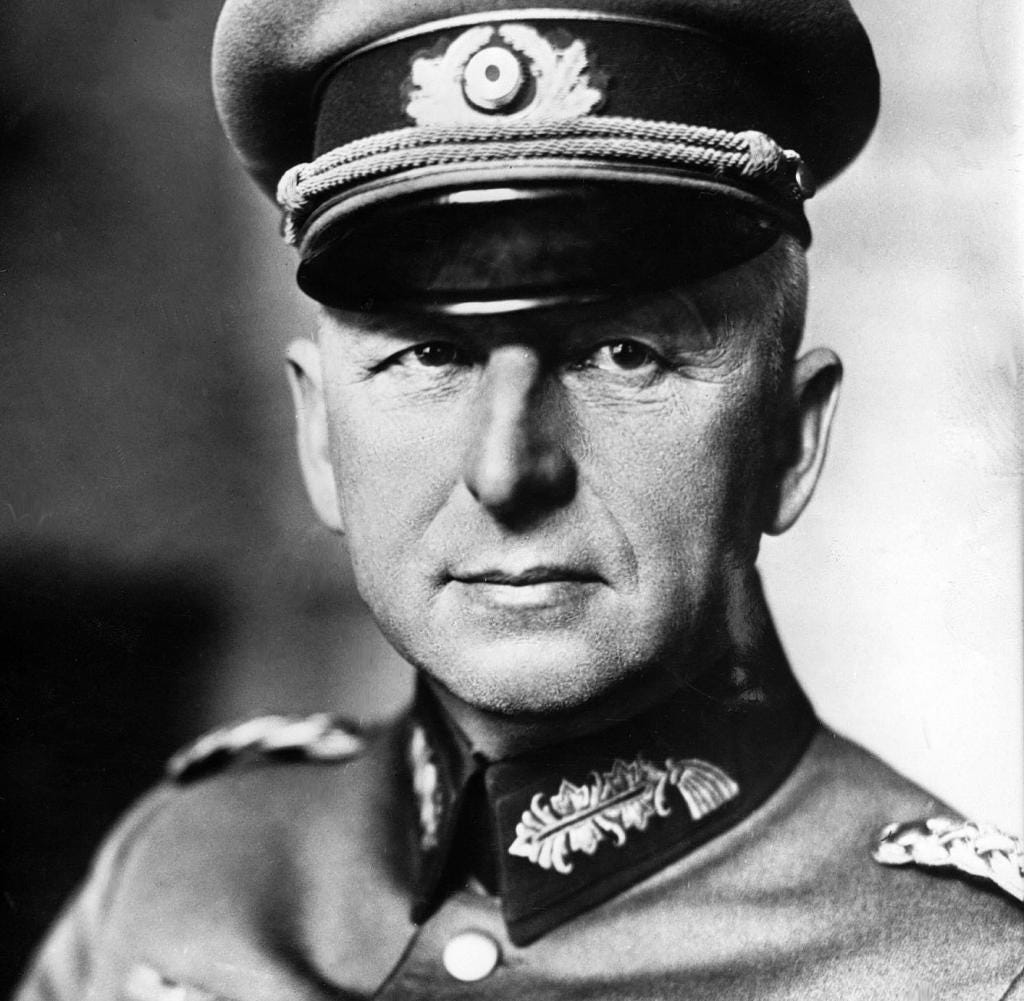Maneuver Warfare
Great dangers rise up when you least expect them.
Lately I’ve been reading one of the most fascinating war-related books I’ve ever come across:
A New Conception of War – John Boyd, The U.S. Marines, and Maneuver Warfare, by Ian T. Brown.
(The book has been out of print for some time, but is available in pdf format from Marine Corps University at the following link: A New Conception of War.)
John Boyd was one of the most brilliant and celebrated modern military theorists, and his concepts were extremely influential among many in the post-Vietnam officer cadre of the United States Marine Corps.
In particular, the highly regarded USMC General Paul K. Van Riper became a zealous disciple of Boyd’s conceptions of war. I have previously written of Van Riper’s legendary exploits, and most recently his observations of the ongoing war in Ukraine.
Also, in a recent article I published, I described how, during the Second World War, the Red Army had frequently employed deception to lure the Wehrmacht into situations where they could then be cut off and destroyed in detail.
Of course, the German commanders were brilliant in their own right, and they frequently turned the tables on the Soviets in the same fashion. A New Conception of War makes specific reference to such a case – one I believe is particularly apropos to ongoing events in Ukraine:
One example Boyd provided of using terrain as a medium for mentally unhinging an enemy, and not simply as a military objective in itself, came from Field Marshal Erich von Manstein’s “Donetz counterstroke” against the Soviet Red Army in World War II. Manstein deliberately took a “long step backward,” giving up large swathes of territory to make the Soviets overconfident and overextended. When Manstein finally counterattacked, the surprise caused complete mental and moral disorientation on the part of the Russians, netting Manstein all the territory he had voluntarily surrendered and, more important, large numbers of Russian prisoners.
(A New Conception of War, p. 108, emphasis added)
Manstein’s “long step backward” had the effect of drawing the Soviets out of well-prepared defensive positions, and into the open field of battle, where the Germans repeatedly resisted, then withdrew even further, until Soviet supply lines had been stretched dangerously thin, and their forces were extremely diluted in the large “bulge” their advance had created.
This is precisely the scenario we have seen play out in the Kharkov region over the past month.
For weeks now, the vastly outnumbered Russian forces have been executing a fighting retreat – ceding territory to the advancing Ukrainians, briefly occupying strong prepared defensive positions from which they inflict severe losses on the Ukrainian attackers, and then retreating yet again to another line of prepared positions.
As is always the case during an ongoing battle, reliable casualty numbers are difficult to ascertain. But the nature of the terrain, the strength of the prepared Russian defenses, and the Russians’ overwhelming superiority in terms of air power and artillery have afforded them a huge battlefield advantage.
Contributing to this advantage has been the frequently displayed rashness of almost suicidal banzai-like Ukrainian assaults on hardened Russian positions which, although their significant numerical superiority ultimately permitted them to compel another Russian retreat, hugely disproportionate losses of manpower and military equipment have been inflicted on the Ukrainian attackers.
Late last week, in my article entitled Turning Point, I described how the Ukrainians had expended thousands of troops and hundreds of vehicles in their quasi-fanatical attempts to take both Kupyansk and Liman.
Nevertheless, those two towns were taken, and the Ukrainians have continued to make modest advances since then while the Russians prepare yet another hardened defensive line several kilometers further east.
It remains to be seen how much longer the AFU can sustain this thrust, but it has already exacted a significant toll on the newly mobilized formations of NATO-trained and NATO-equipped Ukrainian brigades committed to this campaign.
FYI: Over the life of this blog, a few generous people have pledged some money to support it. But I have never required a paid subscription to read my stuff. And I still won’t. However, I have now “enabled” subscriptions purely as a means by which, if people are so inclined, they may support me with whatever amount they so choose. I also include a “Tip Jar” link in every post, if you’d like to go that route. But you don’t have to if you don’t want to. It’s purely voluntary. Everyone will still be able to read everything I write.
For all of you who have previously pledged to support this blog, I express my genuine gratitude. I hope my writing has been informative in some small manner and aided you in your quest to understand our crazy world a little better.
— Will Schryver
TwitterX: @imetatronink





